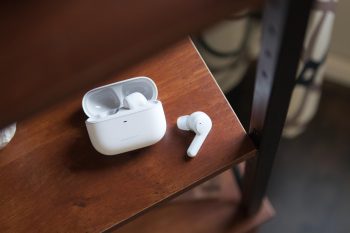
Qualcomm joins the Bluetooth Hi-Fi parade with aptX Lossless
Over the course of the past year, we have seen a wave of music streaming services upping the quality of their catalogs. With Apple leading the way, followed by Amazon Music Unlimited, and Spotify coming later this year, you’re not going to be limited to just using one streaming service for your hi-fi needs.
But part of the problem with having access to higher quality music is that your current Bluetooth headphones likely can’t take advantage. Even Apple’s own $550 AirPods Max can’t stream Lossless audio from Apple Music.
Qualcomm is hoping to change that a bit as it has announced its aptX Lossless Bluetooth codec. According to the company, this will offer CD-quality audio streaming, in 16-bit and at 44.1kHz. Surprisingly, this is not an all-new audio codec, but instead, makes use of the aptX Adaptive codec paired with Qualcomm’s “Bluetooth High Speed Link.”
Designed to work seamlessly together, these technologies deliver rates beyond 1Mbit/s yet smoothly scale down to 140kbits/s in congested RF environments to minimize any audio dropouts or glitches for a consistent and reliable listening experience.
The company points out that aptX Lossless is a new “feature” of Snapdragon Sound, which was also announced back in March as an audio platform that will be integrated with future headphones. According to Qualcomm, Snapdragon Sound will “deliver high-resolution music, crystal-clear voice calls, and lag-free gaming”.
And if you’re an audiophile wondering about the specifics of aptX Lossless, Qualcomm has provided those:
- Supports 44.1kHz, 16-bit CD lossless audio quality
- Designed to scale-up to CD lossless audio based on Bluetooth link quality
- User can select between CD lossless audio 44.1kHz and 24-bit 96kHz lossy
- Auto-detects to enable CD lossless audio when the source is lossless audio
- Mathematically bit-for-bit exact
- Bit-rate – ~1Mbps
It may come as a bit of a surprise, but Qualcomm also shared today that its 2021 State of Sound survey revealed an “increasing demand for higher quality streaming audio.” According to the survey, almost 65% of users say that the inclusion of better sounding streaming audio is an influence on purchasing a new set of headphones.
According to Qualcomm, Snapdragon Sound and aptX Lossless will begin arriving in consumer products in “late calendar 2021”. Considering that we’re already into September, we shouldn’t have too much longer to wait.